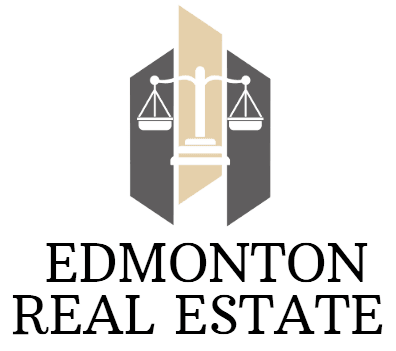Thinking of buying a home or investment property in Canada, but not a citizen or permanent resident? Good news — it’s definitely possible. But it does come with a few extra steps, some specific taxes, and important legal considerations.
Whether you’re looking for a vacation home, planning to move one day, or simply investing in Canada’s stable housing market, this 2025 guide walks you through everything you need to know — clearly and step by step.
Can Foreigners Still Buy Property in Canada?
Yes, foreigners can buy property in Canada — but with a few caveats.
From January 1, 2023, to December 31, 2024, Canada had a temporary ban on foreign homebuyers in many urban residential markets. That restriction has now expired as of 2025, which means non-residents can once again legally purchase homes throughout the country.
However, some provinces (like British Columbia and Ontario) still charge additional taxes on foreign buyers, so it’s important to understand local regulations.
Step-by-Step Guide: How to Buy a House in Canada as a Non-Resident
Here’s a simplified overview of what the process typically looks like:
✅ 1. Check Your Eligibility
You don’t need to be a citizen or resident of Canada to own property. But you will need:
- Valid passport or government-issued ID
- Proof of income or assets
- Compliance with Canadian banking laws
✅ 2. Pick a City or Region
Big cities like Toronto, Vancouver, and Montreal are popular, but expensive.
More affordable alternatives include Calgary, Halifax, Winnipeg, or London (ON) — each offering great value and quality of life.
✅ 3. Hire a Real Estate Agent
Work with an agent who understands the non-resident buying process. They’ll guide you through market research, offers, negotiations, and legal paperwork.
✅ 4. Secure Financing
As a foreign buyer, you can apply for a Canadian mortgage, but most lenders will require:
- At least 35% down payment
- Proof of stable income and assets
- Strong credit history
- Mortgage approval as a non-resident
✅ 5. Open a Canadian Bank Account
This makes it easier to manage your purchase, make mortgage payments, and handle ongoing costs. You’ll also need to work with a Canadian lawyer or notary for the final transaction.
✅ 6. Make an Offer
If your offer is accepted, you’ll typically be asked to pay a deposit of 5–10% of the purchase price.
✅ 7. Do Your Due Diligence
Before closing, complete a:
- Home inspection
- Title and zoning check
- Legal review of the purchase contract
✅ 8. Close the Deal
Sign the documents, transfer the funds, and cover closing costs — then you officially become a homeowner in Canada.
2025 Comparison: Foreign vs. Canadian Buyers
| Feature | Foreign Buyer | Canadian Citizen/PR |
|---|---|---|
| Down Payment | Min. 35% | As low as 5% |
| Mortgage Access | Limited lenders | Full access |
| Foreign Buyer Tax | 15–25% (select provinces) | None |
| Residency Required? | No | Not applicable |
| Rental Ownership? | Allowed | Allowed |
Costs to Expect as a Foreign Buyer
| Cost Type | Typical Amount (CAD) |
|---|---|
| Property Transfer Tax | 0.5–2% (varies by province) |
| Foreign Buyer Tax | 15–25% in BC, ON, NS |
| Legal Fees | $1,500–$3,000 |
| Home Inspection | ~$500 |
| Land Registration Fees | $100–$300 |
| Property Management | ~5–10% of rental income |
Pros & Cons of Buying in Canada as a Non-Resident
✅ Pros
- Canada’s real estate market is stable and well-regulated
- Full property ownership rights for non-residents
- Opportunity for rental income or resale
- No restrictions on future sale or transfer
❌ Cons
- Higher upfront costs due to taxes and larger down payment
- Stricter mortgage requirements
- Foreign exchange risks
- More complicated legal and banking process
FAQs: Buying Canadian Property as a Foreigner
Can I buy a home without Canadian citizenship?
Yes, foreigners can legally purchase residential property, land, and condos in most parts of Canada.
Do I need to live in Canada to own property?
No. You can buy as a non-resident and manage the home remotely or hire a local property manager.
Can I rent out my property?
Yes, rental income is allowed — but you’ll need to report it to the Canada Revenue Agency (CRA) and may be subject to withholding tax.
Will I be taxed differently?
Yes. Provinces like BC, Ontario, and Nova Scotia charge a foreign buyer tax (15–25%). You may also owe income tax on rental earnings.
Can I get a mortgage in Canada?
Yes — though it’s tougher. You’ll likely need:
- A 35%+ down payment
- Proof of income and savings
- A Canadian bank account
- Possibly higher interest rates
Final Thoughts
Buying a house in Canada as a foreigner is 100% doable — but it takes planning. From higher down payments to regional taxes, there are unique rules that non-residents need to navigate. But with the right team (agent, lawyer, lender) and clear goals, the process can be smooth and rewarding.
Pro tip: Use a Canadian mortgage calculator to explore different purchase scenarios. And don’t skip hiring a real estate lawyer experienced in international transactions — they’ll be your best ally.
Whether you’re buying your dream vacation home or planting roots for the future, Canada’s real estate market in 2025 remains open, accessible, and full of opportunity.
